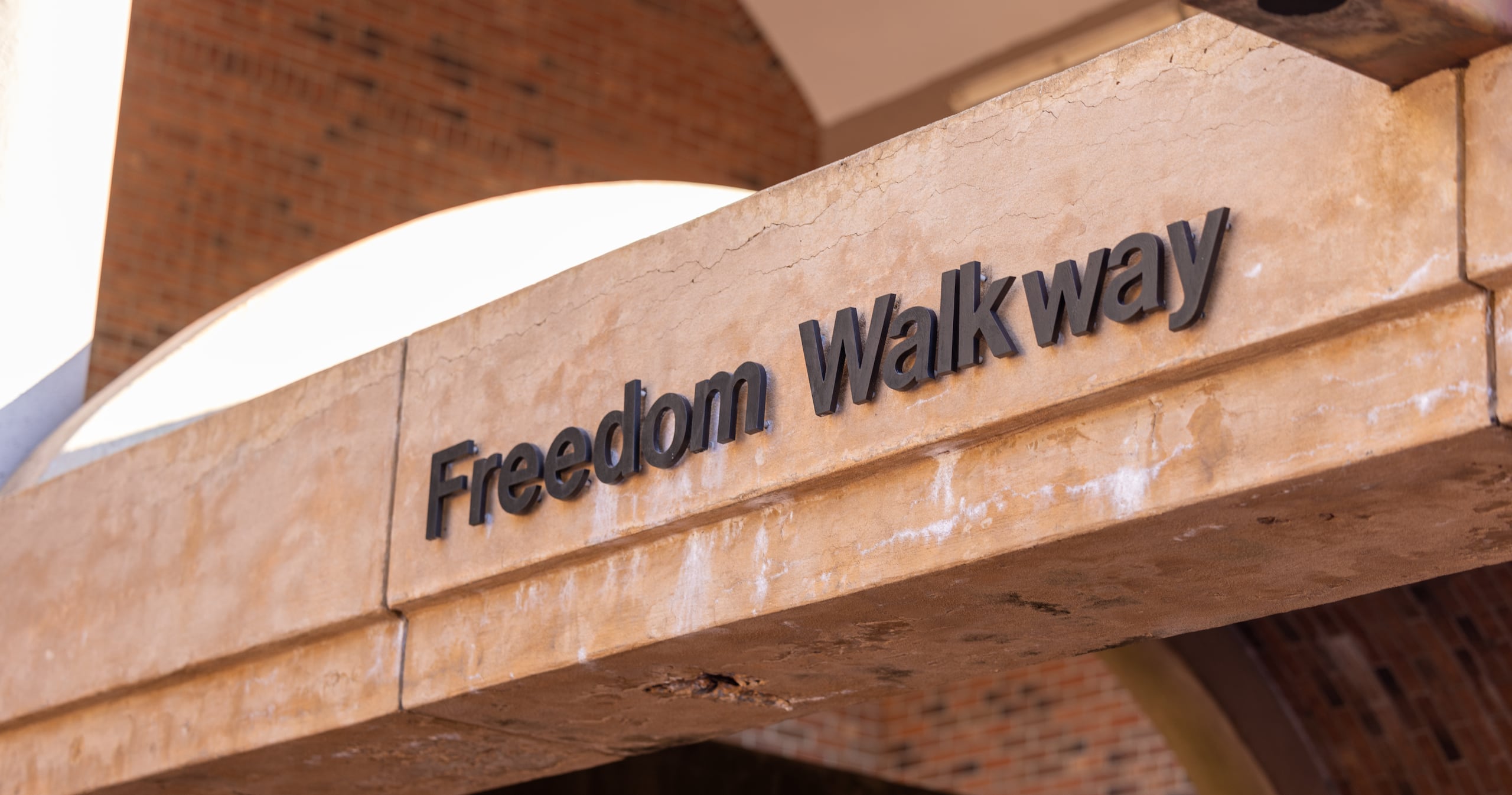These defining African American sites in Atlanta showcase Black history and its future

Atlanta has made a name for itself as a “Black mecca,” where economic opportunities for this underrepresented group have historically flourished. Atlanta is known for a rich history of Black wealth in the United States, establishing itself prominently after its post-Civil War and post-Confederacy past. It is by no means a coincidence that some of the world’s most well-known Black leaders hail from Atlanta and that some of the best historically Black colleges are also located in Atlanta.
Explore some of the most defining sites in Atlanta that showcase and celebrate Black history and success.
Martin Luther King, Jr. National Historic Park
Some of the nation’s most renowned Historically Black Colleges & Universities (HBCUs) are located in Atlanta, in close proximity to each other at the Atlanta University Center (AUC) Consortium near the West End. The schools include Morehouse College, Morehouse School of Medicine, Spelman College, and Clark Atlanta University. Famous alumni include Dr. Martin Luther King, Jr., Maynard Jackson, Samuel L. Jackson, Spike Lee, Alice Walker, Raphael Warnock and Stacey Abrams.
Location: Northwest Atlanta - 156 Mildred St SW; Website: aucenter.edu; Contact: 404-523-5148
Paschal’s Restaurant
During the Civil Rights Movement, the original Paschal’s Restaurant was known to be the unofficial gathering place of civil rights leaders such as Dr. Martin Luther King, Jr., Andrew Young, Ralph Abernathy, John Lewis, Fannie Lou Hamer and more. They came together to strategize their peaceful protests, such as marches and sit-ins, and they also came together for a safe haven from the threats they received. In 2002, James Paschal and prominent Black businessman Herman J. Russell partnered together to bring a new vision to Paschal’s for the 21st century.
Location: Downtown - 180 Northside Dr SW; Website: paschalsatlanta.com; Contact: 404-835-0833
Booker T. Washington High School
Listed on the National Register of Historic Places, Booker T. Washington High School is known for being Atlanta’s first Black public high school. The school opened in 1924, around 50 years after the first public school opened in Atlanta. It continued to be the only public high school for African Americans until 1947. Providing public education for Black Americans in the Atlanta area allowed the community to flourish when access to education would have been otherwise impossible. Dr. Martin Luther King, Jr. was an alumnus of Booker T. Washington High School.
Location: Northwest Atlanta - 45 Whitehouse Dr SW; Website: atlantapublicschools.us; Contact: 404-802-4600
Herndon Home Museum
Alonzo Franklin Herndon was the founder of the Atlanta Life Insurance Company, which started in 1905 and was one of the most prominent Black-owned businesses in the nation. The success of this business allowed Herndon, a former slave, to become Atlanta’s first Black millionaire. His house, which is a National Historic Landmark, is located at Morris Brown College and is available to visit today.
Location: Northwest Atlanta - 587 University Pl NW; Website: herndonhome.org; Contact: 404-581-9813
Russell Innovation Center for Entrepreneurs (RICE)
The mission of the Russell Innovation Center for Entrepreneurs (RICE), a Black business generator, is to inspire and empower Black entrepreneurs. RICE is named after esteemed Atlanta businessman Herman J. Russell, who worked in real estate development, airport concessions and construction/project management and has made a lasting legacy in Atlanta. (In fact, Russell’s company, Concessions International, supplies the food and drink we enjoy before our flights at Hartsfield-Jackson Atlanta International Airport, amongst other airports across the country). RICE currently serves as a business generator, accelerator and innovation lab specifically for Black entrepreneurs to pave the way for future success.
Location: Downtown - 504 Fair St SW; Website: russellcenter.org
Sweet Auburn District
RELATED: Your guide to Atlanta’s historic Sweet Auburn neighborhood
The Sweet Auburn District, where Dr. Martin Luther King, Jr. grew up, once served as a wealthy Black neighborhood with a large concentration of successful African-American businesses around the 1940s-1950s. Things changed when the Downtown Connector, which was constructed in 1962, split Sweet Auburn in two and caused it to fall into a state of disrepair. However, the neighborhood’s status as a National Historic Landmark District has allowed it to preserve many iconic buildings, such as the Butler Street YMCA, which was known as “Black city hall,” as well as multiple churches (Big Bethel AME, Our Lady of Lourdes, and Wheat Street Baptist Churches), and the Atlanta Daily World building, which served as the headquarters of Atlanta’s first Black newspaper.
Location: Downtown
Oakland Cemetery’s African American Burial Grounds
When you take a stroll in the peaceful Oakland Cemetery, you’ll be mostly greeted with beautiful and intricate tombstones and mausoleums. However, you will notice a staunch difference at the African American Burial Grounds section, which consist of only six acres. While around almost 12,000 African Americans are buried in Oakland Cemetery, the number of actual tombstones is quite sparse. Current tombstones of famous Black Americans include James Tate, William Finch, Selena Sloane Butler and Maynard Jackson.
Location: East Atlanta - 248 Oakland Ave SE; Website: oaklandcemetery.com; Contact: 404-688-2107
South-View Cemetery
Before Dr. Martin Luther King, Jr. was laid to rest next to his wife, atop the beautiful reflection pool in the King Center, he was buried at South-View Cemetery right after his assassination. Additional prominent Black leaders who are buried at South-View Cemetery include John Lewis, John Wesley Dobbs, Alonzo Herndon and Hank Aaron.
Location: Southeast Atlanta - 1990 Jonesboro Rd SE; Website: southviewcemetery.com; Contact: 404-622-5393
